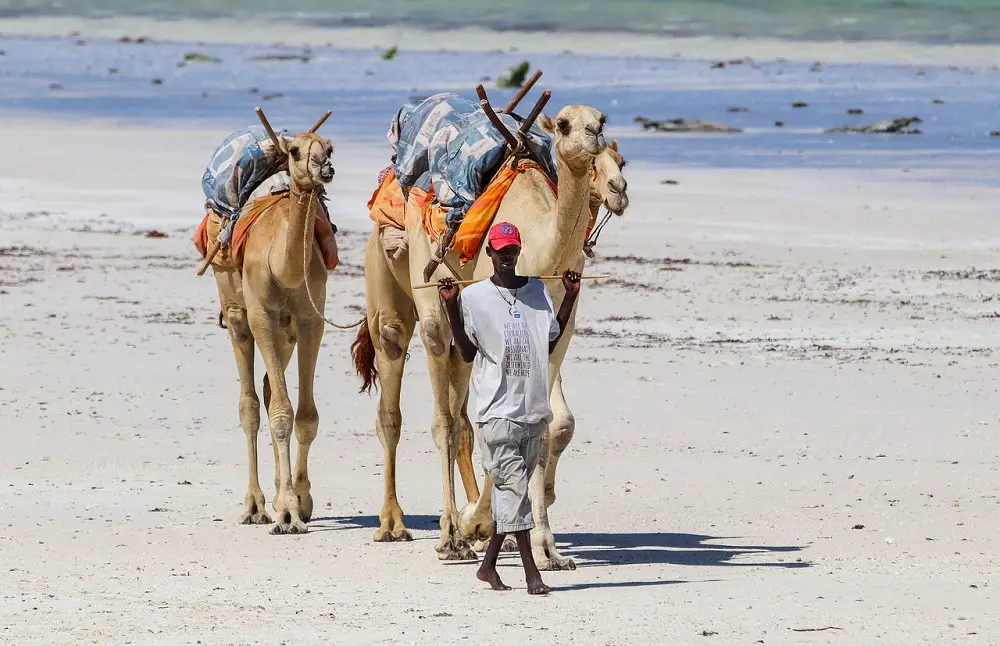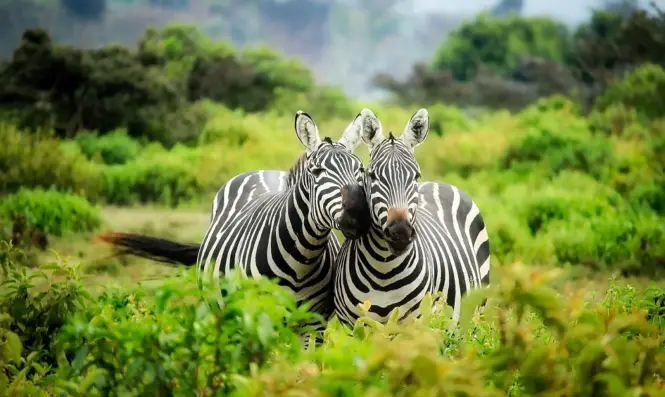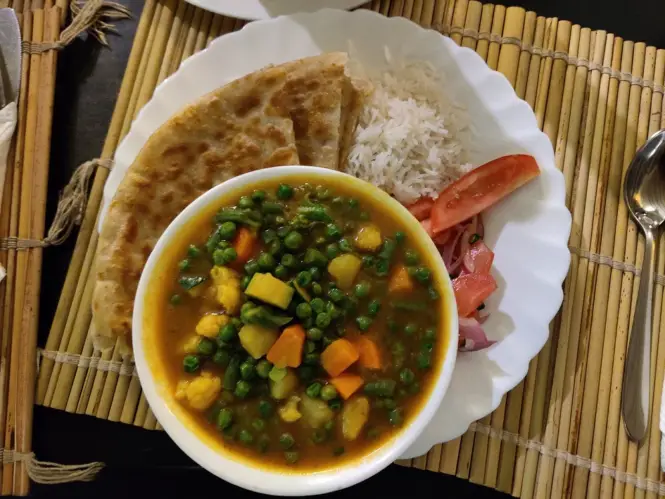
11 Things You Need to Know Before Visiting Kenya
Kenya is undoubtedly one of the best destinations in Africa. It has spectacular safaris, deserts, forests, and even white-sand beaches — not to mention a rich culture and history that is just waiting to be experienced. If you’re planning on visiting Kenya, here are the things you should know to help make your stay safe and enjoyable.
Contents
1. Visa
Kenya has an extremely flexible and traveler-friendly visa system with most countries eligible for the Kenya eVisa.
Citizens of some countries, mostly located throughout South and East Africa can visit Kenya visa-free. However, most foreign travelers will need to get an eVisa before departing to Kenya.
Luckily, this can be easily done online either via an official government website or via an eVisa agent. The second option may come easier to some travelers since eVisa agents take care of the whole process for travelers submitting their applications.
One of such eVisa agents is evisa-kenya.com that offers detailed Kenya eVisa-related information in 10 languages, including English, German, Spanish, Italian, Russian, Dutch, and more!
eVisa agents also provide travelers with more clear and intuitive application forms. This definitely eases the whole process.
The approved Kenya eVisa is, later on, delivered to each traveler via email and comes in the form of a PDF file that can easily be downloaded and printed prior to the planned trip.
TIP! Remember to submit your application no later than 72 hours before departure to receive the approved document on time. The processing is only done during business days so make sure to apply 3 business days before going to Kenya.
2. When is the best time to visit

Not everyone knows that Kenya has two different rainfall periods. The first one is often called the long rains season that lasts from March/April to May/June. While the second one is the season of short rains that starts in October and lasts up until November/December.
The hottest period has its peak in February/March while the coldest month is July. Taking all that into consideration, you have to choose the best time to visit Kenya for your specific needs and wants.
3. Booking flights
It’s best to book your plane tickets to Kenya at least a month or even earlier before the planned departure to find the best deals out there.
Take into consideration the time of the year when booking as well since the high season for Kenya lasts between November till January while the best month price-wise is April.
4. Vaccines
Every person that plans on visiting Kenya should visit their doctor to discuss any possibly needed vaccinations for the planned stay.
Besides the regular vaccinations taken throughout your childhood, you may also need a few additional shots, e.g., for yellow fever, hepatitis B, hepatitis A, rabies, polio, or meningitis.
Schedule a doctor appointment a few weeks before your planned departure and discuss if you need any vaccination for your trip. You may be required to present a certificate (particularly for yellow fever) depending on where you are coming from.
5. Safaris

Kenya offers some of the best safari opportunities in all of Africa for all adventurous travelers out there.
The country is home to an abundance of wildlife and natural beauty that will leave you breathless. Enjoy the beautiful scenery and get up close to some of the world’s most endangered species!
There are many different types of game viewing experiences available within Kenya’s national parks, so it’s important to know what you’re looking for before booking your trip. Some of the most popular safari parks in Kenya include the Masai Mara National Reserve, the Lake Nakuru National Park, the Amboseli National Park, and other.
6. Food

Kenya offers an array of tasty and exciting food options for those who visit. The cuisine varies greatly from region to region, as does the price range for dining out.
Make sure to try some of these staple dishes:
- Ugali — This staple food is made from maize flour and looks like a dumpling or doughy ball. You’ll find it served with pretty much every meal, though it’s usually eaten on its own as well.
- Sukuma Wiki — This dish is basically spinach cooked until soft with oil, onion, tomatoes, garlic, and ginger. It tastes delicious alongside ugali or rice!
- Chapati (flatbread) — Kenyan chapati is a flatbread that can be filled or eaten plain. It’s made from flour and water, rolled out thin, and cooked on a hot plate – similar to the method used for making tortillas. Chapatis are traditionally cooked in a clay oven.
- Nyama Choma — This is roasted goat meat that is usually eaten with the kachumbari salad and ugali.
- Githeri — A one-pot dish consisting of corn and beans. You can eat it plain or with seasonings.
These dishes can be bought at most restaurants or street vendors throughout the country.
7. Avoid insect bites
If you’re coming to Kenya and want to avoid any contact with creepy crawlers, make sure to pack your anti-insect repellent.
Particularly dangerous could be mosquitos, tics, and the tsetse flies that may infect humans and animals with the sleeping sickness.
To prevent insect bites make sure that you:
- Wear protective clothing, it’s best if it was long-sleeved
- Wear clothes in neutral colors not to attract the bugs
- Have an insect repellent
- Sleep with a mosquito net on
- Avoid wild terrains and bushes.
8. Prepare for strong sun rays
The feeling of the warm sun rays on your skin can sure feel relaxing and healing. But the sun can also be very dangerous, especially in hot places like Kenya.
Don’t underestimate the power of the sun and prepare for the trip. Don’t forget your sunscreen, which should be very protective. Always apply it before going outside, especially to your face.
It’s best to also have some head covering whether in form of a hat, a scarf, or a cap. Protect your head and skin to avoid a stroke, overheating, skin cancer, or simply sunburns.
9. Haggling
Another important thing to know before leaving for a trip to Kenya is that haggling is very common and can be used to get better prices on items you wish to buy. Test your haggling skills while in Kenya, especially when visiting one of the local markets. This will also be a perfect chance to get to talk with locals while trying local produce.
Remember to stay polite while haggling and not to go overboard while negotiating a reasonable price.
10. Tipping
Tipping is not required in Kenya, but typically workers earn a meager salary so it’s recommended to give tips especially if you have received good service. This goes for the taxi drivers, restaurant staff, and even your safari guide. When going on a safari, a good tip amount is 1000 KES (about 10 USD).
11. Covid-19 Requirements
Visiting Kenya during the pandemic, as every country now, is a bit more difficult. There are more documents to take care of before departing, as well as some tests to get done.
(Updated as of 2021) Every traveler planning to visit Kenya should take a Covid-19 test and register their negative result from the test onto the trusted travel platform to receive a special code. The trusted travel platform can be reached either through PanaBIOS or the Global Haven platform.
The next thing that travelers need to take care of is filling the obligatory health declaration that can be accessed on the official Kenyan Government website.
Sometimes, the airport or border officials can forward travelers to random antigen testing, which costs are covered by the Kenyan Government. Some travelers may also need to undergo a quarantine period.
Visiting Kenya can be an exciting experience for anyone who has never been there before!
Have you been to Kenya? Do you have anything else you want to share? Let us know in the comments section below!
This article is contributed by an expert guest author.


